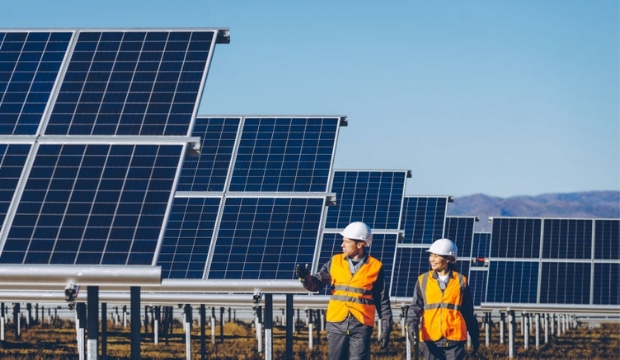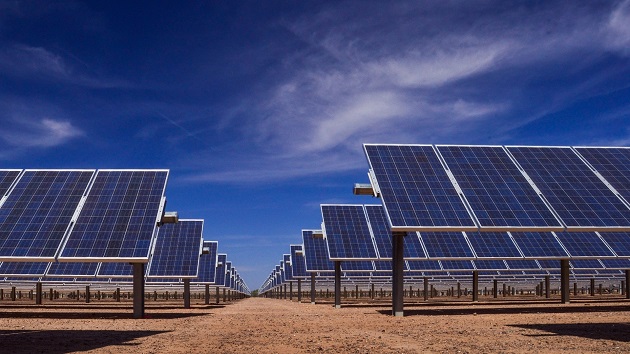Commercial Solar Providers Virginia: Lumina Solar Specializes In Supplying Advanced Photovoltaic Solutions For Houses And Companies
History and Founding
Have you ever wondered how a photovoltaic panel business springs from a simple trigger of inspiration into a powerhouse of sustainable energy? It frequently starts with a vision-- one fueled by a blend of development, decision, and a pinch of serendipity. The journey of many solar companies mirrors the evolution of the technology itself: from bulky, inefficient panels to sleek, high-efficiency marvels utilizing the sun's bounty.
The Early Days
In the late 20th century, when solar energy was still a specific niche idea, pioneers planted seeds for what would end up being an international movement. Imagine a little workshop filled with curious engineers, tirelessly experimenting with solar batteries. Their enthusiasm was palpable, often driven by a desire to fight environment change and minimize dependence on nonrenewable fuel sources.
One such anecdote has to do with a creator who, motivated by a camping journey, realized that even in remote locations, the sun might power important gadgets. This easy observation triggered a company's objective to democratize access to tidy energy.
Founding Concepts

- Development: Continuously pressing the boundaries of solar technology to enhance efficiency and sturdiness.
- Sustainability: Committing to environment-friendly manufacturing and reducing carbon footprints.
- Availability: Making renewable resource options cost effective and practical for daily users.
Turning points in Growth
| Year | Key Event |
|---|---|
| 1985 | Company established in a small garage, concentrating on research and development. |
| 1995 | Commercial solar panel product introduced, gaining regional attention. |
| 2005 | Expanded to global markets, accepting worldwide eco-friendly energy objectives. |
| 2015 | Introduced advanced photovoltaic panel innovation with boosted energy conversion. |
Isn't it interesting how these incremental actions, often overlooked, form the energy landscape today? The photovoltaic panel company story is not simply about innovation; it's about a relentless quest for a brighter, cleaner future.

Innovations in Solar Panel Technologies
Ever noticed how some solar panels gleam brighter and last longer? It's not magic; it's the science of photovoltaic performance. Modern photovoltaic panel business invest heavily in innovations like bifacial cells, which catch sunlight from both sides, improving energy harvest without broadening roofing area. Have you ever wondered why some panels perform better on cloudy days? That is because of advances in thin-film solar innovation, which prospers under diffused light conditions.
Item Variations Tailored to Special Needs
One size never fits all. Solar panel service providers now use:
- Monocrystalline panels for maximum efficiency and streamlined looks, perfect for space-constrained rooftops.
- Polycrystalline panels, which use an economical option without compromising excessive output.
- Building-integrated photovoltaics (BIPV), combining solar tech perfectly into architectural elements like windows and facades.
Picking the right item isn't practically upfront cost; it's about matching your environment, energy here objectives, and long-lasting cost savings. For instance, homes shaded by trees need panels that stand out in low-light situations, something many ignore till energy bills climb unexpectedly.
Technical Tips for Ideal Choice
- Examine the temperature level coefficient-- lower worths indicate panels lose less efficiency on hot days.
- Search for panels with enhanced anti-reflective coverings to make the most of light absorption.
- Think about the panel's warranty not simply for problems, but for ensured power output over years.
- Do not undervalue the value of the inverter innovation coupled with the panels; it can make or break your system's performance.
Beyond Panels: Emerging Trends
Imagine photovoltaic panels that adjust their angle immediately to chase after the sun-- tracking systems are becoming more accessible, increasing yield significantly. Or solar tiles that mix invisibly into your roofline, transforming your home into a quiet, self-dependent power generator. These innovations are improving what a photovoltaic panel business offers-- not just products, but integrated energy services.
Market Existence and Global Operations
Ever wonder why some solar panel companies appear to sprout up in every corner of the world while others barely make a ripple? The distinction lies not simply in innovation but in mastering the art of navigating varied markets. Expanding globally resembles planting seeds in various environments-- you must understand each environment's special conditions to grow.
Take, for instance, the detailed dance of logistics and supply chain management. Delivering panels midway across the world isn't almost distance; it has to do with timing, customs, tariffs, and adapting to local demand variations. A business with robust global operations expects these variables, making sure panels show up on schedule without inflating costs. This insight is no little task and often separates industry leaders from fans.
Key Strategies for Expanding Market Existence
- Localized manufacturing: Developing production hubs near target audience minimizes shipping delays and import complexities.
- Strategic collaborations: Collaborating with local firms speeds up market penetration and develops trust.
- Adaptive product style: Customizing photovoltaic panel tech to weather, sun strength, and facilities subtleties boosts efficiency and approval.
What about the human factor? Solar panel business running internationally should reconcile cultural distinctions and regulative subtleties without forgeting their core objective. For example, what operate in a sun-drenched desert may falter in a damp seaside area. Often, the most innovative solution is merely listening-- absorbing local insights to refine innovation and technique.
Specialists often advise a phased rollout rather than a shotgun expansion. Why run the risk of overextension when determined development builds sustainable momentum? Scaling carefully indicates balancing aspiration with functional resilience - Solar Panel Installation Virginia. After all, in the race for sustainable energy dominance, perseverance can be as valuable as speed
Environmental Impact and Sustainability Practices
When photovoltaic panels first emerged, numerous presumed they carried absolutely no ecological baggage. However, the reality is more nuanced. The production of photovoltaic cells includes uncommon earth metals and energy-intensive procedures, which can leave a sizable carbon footprint before the panels even reach rooftops. Yet, the true environmental expense depends heavily on the sustainability practices utilized by the solar panel company throughout the lifecycle of their products.
How often do we stop briefly to consider what happens to solar panels at the end of their useful life? Unlike batteries or electronics, solar panels can last 25-30 years, however disposal and recycling paths stay underdeveloped in many areas. A business devoted to lowering environmental harm will have a robust prepare for recycling photovoltaic materials, restoring important silicon, glass, and metals to avoid garbage dump accumulation.
Key Sustainability Methods
- Using low-impact production strategies that decrease water and energy consumption.
- Carrying out closed-loop systems to recycle production waste back into new panels.
- Taking part in transparent supply chain audits to guarantee ethical sourcing of basic materials.
- Creating panels for easier disassembly to aid future recycling efforts.
It deserves noting that some solar business have pioneered ingenious methods, such as incorporating eco-friendly elements or utilizing less poisonous chemicals throughout fabrication. This not only lowers ecological stress but also sets a precedent for the market. The concern remains: can the solar industry genuinely pivot towards a circular economy model without sacrificing efficiency or affordability?
Expert Tips for Examining Sustainability
- Inquire about the business's commitment to carbon-neutral production and whether they balance out emissions.
- Investigate if they partner with accredited recycling facilities devoted to photovoltaic panel waste.
- Look for openness reports detailing environmental effects and sustainability goals.
- Think about the durability and warranty of panels as an indirect step of resource performance.
In the end, choosing for solar power must mean more than just slashing electrical energy bills; it's about supporting a future where energy is collected responsibly and waste is thoughtfully managed. Photovoltaic panel companies that welcome this viewpoint not only illuminate homes however also cast a brighter light on sustainable development.